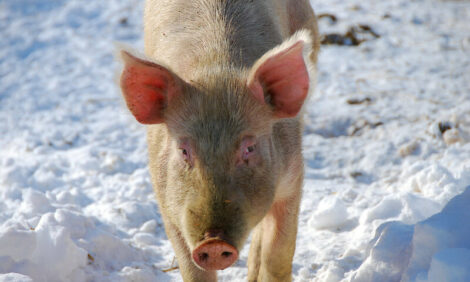



Sustainable and Efficient Pig Breeding Moves Ahead
DENMARK - Years’ worth of ground-breaking research results from Aarhus University will be put to use in a new and extensive collaborative project between the university and the pig industry. The aim is for a more sustainable pig production with the aid of genomic selection.
Modern breeding methods will help speed up a reduction in piglet mortality and in general help pig breeders spot which animals have the best genes for providing a healthy and sustainable life for pigs whilst supplying consumers with pork at a reasonable production cost. Researchers from Aarhus University will collaborate with the Pig Research Centre under the Danish Agriculture and Food Council in a new project that will help solve problems with regard to animal health and welfare and the environment using genomic selection.
Scientists from Aarhus University have been trailblazers with regard to genomic research. With genomics thousands of genetic markers are used concurrently to help select breeding animals with greater assurance than with present breeding methods.
It is expected that the project will result in new model and methods based on DNA information that can make selection of animals for future generations even more confident.
"It puts a new perspective on all breeding work. We would like to help speed up the positive developments that both the industry and society would like to see," said senior scientist Mogens Sandø Lund, Department of Molecular Biology and Genetics at Aarhus University.
With a new DNA-based model it will be possible to improve the selection of animals and make it more efficient, since welfare and economy will now be able to supplement each other much more. Genomic selection will provide unique opportunities. Internationally, the project is presently the most ambitious of its kind, that is, which uses genomic selection in pigs.
In the beginning, pig breeders will be the ones reaping the benefits of the research results but as time goes by the effect of the work will spread to all pig producers. The aim is to improve selection efficiency thereby improving expected breeding progress by 50 percent, corresponding to DKK seven per finisher per year.
The knowledge generated in the project will not be limited to use in pigs.
"Genomic selection is a selection method that will change breeding of both plants and animals. It is a huge project that, together with projects for cattle and rye grass, will gather the experitse for the continuation of research in genomic selection in the Department of Molecular Biology and Genetics. We can thus maintain and continue to develop a strong international position as a group with basic and applied research in genomic selection," said Dr Lund.
Work on developing a DNA-based model will begin in July this year and is expected to be complete by 2014. The project is supported by funds from “Grønt udviklings- og demonstrationsprogram (GUDP) (Green Development and Demonstration Programme) under the Ministry of Food, Agriculture and Fisheries until the summer of 2013. One of the aims of GUDP is to support projects that contribute to more environmentally friendly food production and to improvements in animal welfare.








